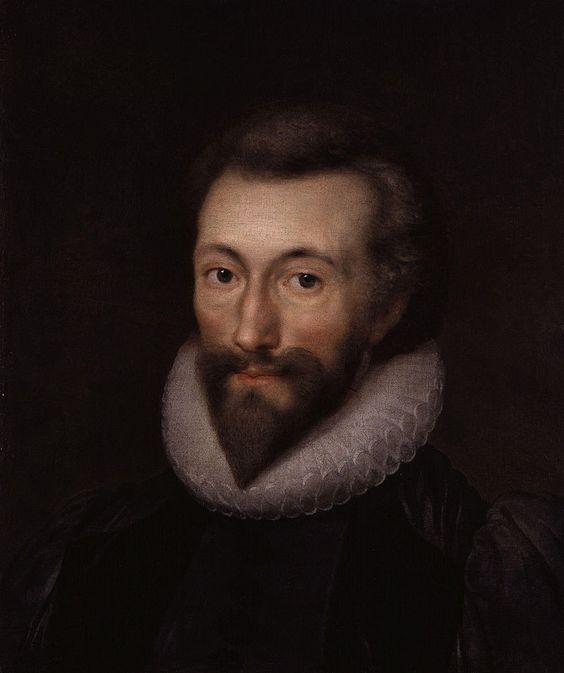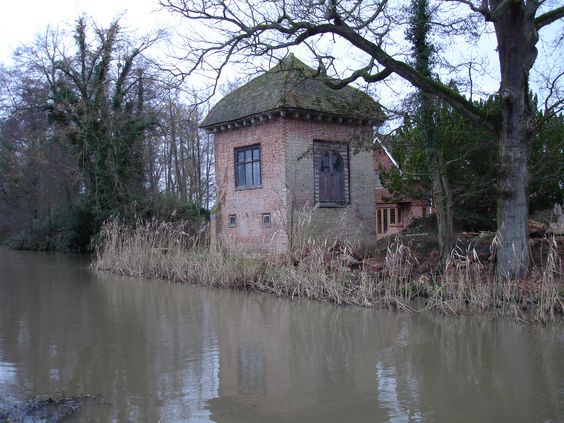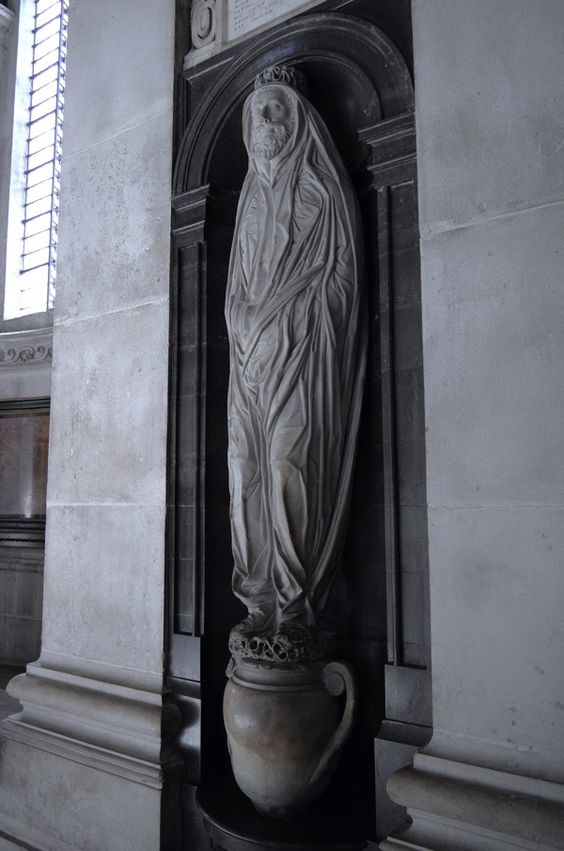One cannot be just one,
The same and none,
For in life
we are altered by phases,
As life did
To John Donne.
A doomed catholic,
Born in Protestant England
Where no degree
He could earn
All due to his
Reli-gi-on
But found his way
To Lincoln’s Inn he,
Where love poems
Were scribbled
And verses, like
‘The Flea’
A student of law,
Adept in Chivalry;
Who in fun and frolic
Had found His glee,
‘Songs and sonnets’
Had set him free.
Free from the unrest,
which he could not
for long Ignore
For violence and injustice
Came knocking
at his Door
His brother,Arrested,
for catholic loyalties,
Had died in prison;
Therefore by joining
The Anglican Church,
John succumbed
to the season;
Then as a soldier,
His new phase had begun,
In the Anglo-Spanish war,
He fought and won;
Secured he the career
He sought, on his return,
For he was appointed
‘Private secretary’
To Sir Thomas Edgarton.
But at the pinnacle of success,
With reputation and propriety,
John made an error
By devoting himself
To an attachment
Disapproved by society;
To the niece of his employer,
Was John secretly married;
And due to this treason,
To the prison
he was carried,
Where by penning a masterpiece
He let his anguish run,
And gave birth to
the unparalleled-
‘The Canonization’.

And reasoned he how his love
Can be disapproved
And not the war or the gun?
When neither any business
Was lost due to it,
Nor any courtroom dispute
It had spun;
Though separated at first,
the couple found each other back,
A devoted husband John remained,
but a promising career he did lack.
Retired they
to the country life of Surrey,
Where part of their house
stands still;
Where John woke up
to ‘The Good Morrow’
But Alas! That could not pay the bill.
The next phase of his life
John unfolds
How poverty destroys
the Happiest of souls
Almost a dozen children,
He and Anne brought forth,
For his family, he struggled,
Did all he could afford;
But one day death came,
For Anne;
The loss of his darling,
Left him floored.
So much had Donne
contemplated in his life,
And like some do in despair,
He now thought of suicide;
Which often leads us to
Turn away from,
Or turn towards- a side,
That promises inner peace,
A spiritual guide,
Thus, to religion, turned John,
This time with all heart and soul,
And ‘Divine poems‘ he published,
All verses aimed at the same goal.
Depth in theology,
Brought him much fame;
His expertise in the law,
Gave him a big name;
To James I, a Royal chaplain,
At St. Paul Cathedral, a dean;
And even after his departure
‘The greatest metaphysical poet’
England had ever seen
He is still there
In Fleet Prison, questioning
“Alas! Alas! Who’s injured by my love?”
And waking up next to Anne,
In the Surrey cottage,
Beside the river; discovering
“My face in thine eye,
Thine in mine appears,”

“Each man’s death
Diminishes me,
For I am involved in mankind”
In all his writings,
a part of ourselves
We can find
For “No Man is an Island,
Entire of Itself“
So to think of anyone
As insignificant
Is childish;
Is unkind.
An effigy of the man
Stands today at St. Pauls
For lovers, to marvel,
To see.
But I see him still
At Lincohn’s Inn,
At some bar table, writing-
“And in this flea our two bloods
Mingled be.”
And before he disappears,
I hear him announce
To not send to know
“For whom the bell tolls,”
. . .
For
“It tolls for THEE.”

Also Read: A love poem on classic love stories